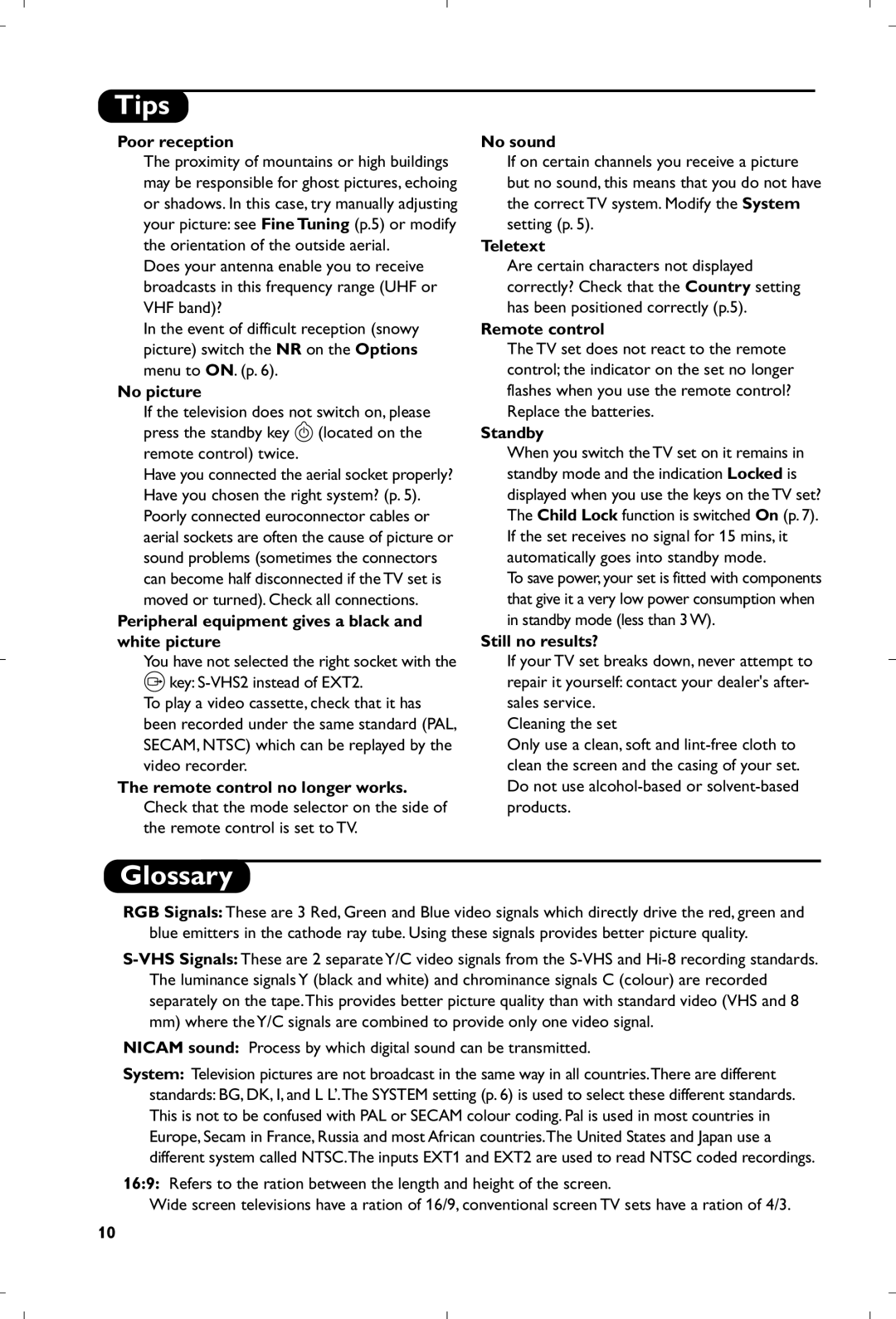
Tips
Poor reception
The proximity of mountains or high buildings may be responsible for ghost pictures, echoing or shadows. In this case, try manually adjusting your picture: see Fine Tuning (p.5) or modify the orientation of the outside aerial.
Does your antenna enable you to receive broadcasts in this frequency range (UHF or VHF band)?
In the event of difficult reception (snowy picture) switch the NR on the Options menu to ON. (p. 6).
No picture
If the television does not switch on, please press the standby key b (located on the remote control) twice.
Have you connected the aerial socket properly? Have you chosen the right system? (p. 5). Poorly connected euroconnector cables or aerial sockets are often the cause of picture or sound problems (sometimes the connectors can become half disconnected if the TV set is moved or turned). Check all connections.
Peripheral equipment gives a black and white picture
You have not selected the right socket with the
nkey:
To play a video cassette, check that it has been recorded under the same standard (PAL, SECAM, NTSC) which can be replayed by the video recorder.
The remote control no longer works. Check that the mode selector on the side of the remote control is set to TV.
No sound
If on certain channels you receive a picture but no sound, this means that you do not have the correct TV system. Modify the System setting (p. 5).
Teletext
Are certain characters not displayed correctly? Check that the Country setting has been positioned correctly (p.5).
Remote control
The TV set does not react to the remote control; the indicator on the set no longer flashes when you use the remote control? Replace the batteries.
Standby
When you switch the TV set on it remains in standby mode and the indication Locked is displayed when you use the keys on the TV set? The Child Lock function is switched On (p. 7). If the set receives no signal for 15 mins, it automatically goes into standby mode.
To save power, your set is fitted with components that give it a very low power consumption when in standby mode (less than 3 W).
Still no results?
If your TV set breaks down, never attempt to repair it yourself: contact your dealer's after- sales service.
Cleaning the set
Only use a clean, soft and
Glossary
RGB Signals: These are 3 Red, Green and Blue video signals which directly drive the red, green and blue emitters in the cathode ray tube. Using these signals provides better picture quality.
NICAM sound: Process by which digital sound can be transmitted.
System: Television pictures are not broadcast in the same way in all countries.There are different standards: BG, DK, I, and L L’.The SYSTEM setting (p. 6) is used to select these different standards. This is not to be confused with PAL or SECAM colour coding. Pal is used in most countries in Europe, Secam in France, Russia and most African countries.The United States and Japan use a different system called NTSC.The inputs EXT1 and EXT2 are used to read NTSC coded recordings.
16:9: Refers to the ration between the length and height of the screen.
Wide screen televisions have a ration of 16/9, conventional screen TV sets have a ration of 4/3.
10
